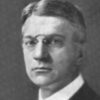How little it takes to make life perfect! A good sauce, a cocktail after a hard day, a girl who kisses with her mouth half open!
H. L. Mencken (1880-1956) American writer and journalist [Henry Lewis Mencken]
A Little Book in C Major, ch. 4, § 21 (1916)
(Source)
Quotations about:
good living
Note not all quotations have been tagged, so Search may find additional quotes on this topic.
Moderation. Small helpings. Sample a little bit of everything. These are the secrets of happiness and good health. You need to enjoy the good things in life, but you need not overindulge.
Julia Child (1912-2004) American chef and writer
“What I’ve Learned,” interview by MIke Sager, Esquire (2001-06)
(Source)
Boy! let my cup with rosy wine o’erflow,
Above the melting of the summer snow:
Let my wet hair with wasteful odour shine,
And loads of roses round my temples twine:
Tombs of the Caesars, your sad honours cry,
“Live, little men, for lo! the gods can die.”[Sextantes, Calliste, duos infunde Falerni,
Tu super aestivas, Alcime, solve nives,
Pinguescat nimio madidus mihi crinis amomo
Lassenturque rosis tempora sutilibus.
Tam vicina iubent nos vivere Mausolea,
Cum doceant, ipsos posse perire deos.]Martial (AD c.39-c.103) Spanish Roman poet, satirist, epigrammatist [Marcus Valerius Martialis]
Epigrams [Epigrammata], Book 5, epigram 64 (5.64) (AD 90) [tr. Hodgson (1809)]
(Source)
Martial could see the Mausoleum of Augustus from his house on the Quirinal.
"Summer snow" was snow preserved (or transported from the mountains) until the summer, used like ice to cool drinks.
(Source (Latin)). Alternate translations:You, boy, two measures of brisk wine let flow,
And you, pour on it summer cooling snow;
Let my moist hairs with rich perfumes abound,
With loads of rosy wreaths my temples crown'd:
"Live now," our neighbouring stately tombs do cry,
"Since kings, you see (your petty gods), can die.
[16th C Manuscript]Two cups, Calistus, of rich wine fill thou,
Thou Alcimus, allay 't with summer snow.
Let my moist haire with richest oyntment sweat;
And sweet rose chaplets on my Temples set.
Come, let us live; the Caesars tombes so nigh
Teach us that even the gods themselves will dye.
[tr. May (1629), 3.65]Twice four Falernians, dear Callistus, pour:
Diffuse, my Alcimus, the snowy show'r.
Bid my locks fatten with enormous oil:
With textur'd roses make my temples toil.
We learn to live from Mausoleums by,
Which teach us that the gods themselves can dy.
[tr. Elphinston (1782), Book 7, ep. 73]Fill high the bowl with sparkling wine;
Cool the bright draught with summer snow.
Amid my locks let odours flow;
Around my temples roses twine.
See yon proud emblem of decay,
Yon lordly pile that braves the sky!
It bids us live our little day,
Teaching that gods themselves may die.
[tr. Merivale (1838)]Fill the double-cyathi cujps with Falernian, pour summer-snow over the wine, let our hair be wet with unstinted perfume, and our temples be loaded with chaplets of roses. The adjacent Mausolea teach us how to live, for they show that even gods can die.
[tr. Amos (1858), 5.65]Fill double cups of Falernian, Callistus; dissolve into it, Alcimus, the summer snow. Let my hair drip richly with abundance of nard, and my temples be encircled with wreaths of roses. The Mausoleums, close at hand, bid us live, for they teach us that even gods can die.
[tr. Bohn's Classical (1859)]Pour in, Callistus, two double-measures of Falernian; do thou, Alciums, dissolve upon them the summer's snow; let my dripping locks be rich with over-bounteous balm, and my temples droop beneath the knitted roses. Your tombs, so nigh, bid us enjoy life, forasmuch as they teach us that the very gods can die.
[tr. Ker (1919)]Slave, a full draught of vintage fine,
And bid thy comrade cool the wine,
Let snow its heat allay;
Twine rosy wreaths to deck my head,
Nard shall its precious fragrance shed
To crown my locks to-day;
For Caesar’s tomb that standeth nigh
Doth warn that even gods can die,
I’ll live while yet I may.
[tr. Pott & Wright (1921), "Carpe Diem"]Callistus, pour two bumpers, pour them neat;
Melt, Alcimus, the snow to quench their heat.
In oozy spikenard steep your perfumed hair
And bow my head with rosy garlands fair.
From yonder Mausoleum breathes the sigh,
"Live while thou mayest, gods themselves must die."
[tr. Francis & Tatum (1924), ep. 259]Pour in an extra cup of dark Falernian.
Strain it through the summer's snow and chill.
Anoint my dripping hair with fragrant perfume,
And crown my head with roses, if you will.
The Mausoleum of divine Augustus
Looming close, so very close nearby,
Orders us to live and love existence
Since even gods themselves decline and die.
[tr. Marcellino (1968)]Callistus, pour in a double double of Falernian. Alcimus, melt summer snow over it. Let my soaked hair be sleek with an excess of unguent and my temples wearied by stitched roses. The Mausoleum so close at hand tells us to live, teaching that the very gods can perish.
[tr. Shackleton Bailey (1993)]Pour me a double measure, of Falernian, Callistus,
and you Alcimus, melt over it summer snows,
let my sleek hair be soaked with excess of perfume,
my brow be wearied beneath the sewn-on rose.
The Mausoleum tells us to live, that one nearby,
it teaches us that the gods themselves can die.
[tr. Kline (2006)]Callistus, pour me a double of Falernian.
Chill it, Alcimus, with summer snows.
Sleek my damp hair with ample oil of cardamom,
and weight my brows with garlands made of rose.
The Mausoleum of Caesar, so close by,
says, "Live it up, for even gods can die."
[tr. McLean (2014)]
It is generally admitted that most grown-up people, however regrettably, will try to have a good time.
Bertrand Russell (1872-1970) English mathematician and philosopher
“Who May Use Lipstick?” New York American (1931-09-14)
(Source)
It takes more courage to live than to die; which is proved by the fact that so many more men die well than live well.
William Lyon Phelps (1865-1943) American educator and critic
Representative Plays by J. M. Barrie, Introduction, § 2 (1926)
(Source)
The kitten has a luxurious, Bohemian, unpuritanical nature. It eats six meals a day, plays furiously with a toy mouse and a piece of rope, and suddenly falls into a deep sleep whenever the fit takes it. It never feels the necessity to do anything to justify its existence; it does not want to be a Good Citizen; it has never heard of Service. It knows that it is beautiful and delightful, and it considers that a sufficient contribution to the general good. And in return for its beauty and charm it expects fish, meat, and vegetables, a comfortable bed, a chair by the grate fire, and endless petting.
Robertson Davies (1913-1995) Canadian author, editor, publisher
The Diary of Samuel Marchbanks, ch. 20 (1947)
(Source)
For those who believe in God, most of the big questions are answered. But for those of us who can’t readily accept the God formula, the big answers don’t remain stone-written. We adjust to new conditions and discoveries. We are pliable. Love need not be a command or faith a dictum. I am my own God. We are here to unlearn the teachings of the church, state and our educational system. We are here to drink beer. We are here to kill war. We are here to laugh at the odds and live our lives so well that Death will tremble to take us.
Charles Bukowski (1920-1994) German-American author, poet
“The Meaning of Life: The Big Picture,” Life Magazine (Dec 1988)
(Source)
I believe in the gospel of Good Living. You can not make any god happy by fasting. Let us have good food, and let us have it well cooked — and it is a thousand times better to know how to cook than it is to understand any theology in the world.
Robert Green Ingersoll (1833-1899) American lawyer, agnostic, orator
“What Must We Do to Be Saved?” Sec. 11 (1880)
(Source)
To be glad of life because it gives you to chance to love and to work and to play and to look up at the stars — to be satisfied with your possessions but not content with yourself until you have made the best of them — to despise nothing in the world except falsehood and meanness, and to fear nothing except cowardice — to be governed by you admirations rather than by your disgusts — to covet nothing that is your neighbors except his kindness of heart and gentleness of manners — to think seldom of your enemies, often of your friends, and every day of Christ; to spend as much time as you can in God’s out-of doors — these are the little guideposts on the foot-path to peace.
Henry Van Dyke (1852-1933) American clergyman and writer
“The Foot-path to Peace,” Tacoma Times (1 Jan 1904)
(Source)
Often shortened to: "Be glad for life because it gives you the chance to love and to work and to look up at the stars."










